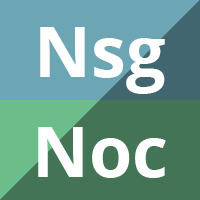
Intracystic bleomycin for cystic craniopharyngiomas in children
Abstract Background Craniopharyngiomas are the most common benign histological tumours to involve the hypothalamo-pituitary region in childhood. Cystic craniopharyngiomas account for more than 90% of the tumours. The optimal treatment of cystic craniopharyngioma remains controversial. Radical resection is the treatment of choice in patients with favourable tumour localisation. When the tumour localisation is unfavourable, a […]

Rapamycin and rapalogs for tuberous sclerosis complex
Abstract Background Previous studies have shown potential benefits of rapamycin or rapalogs for treating people with tuberous sclerosis complex. Although everolimus (a rapalog) is currently approved by the FDA (U.S. Food and Drug Administration) and the EMA (European Medicines Agency) for tuberous sclerosis complex-associated renal angiomyolipoma and subependymal giant cell astrocytoma, applications for other manifestations […]

Radiotherapy for diffuse brainstem glioma in children and young adults
Abstract Background Diffuse brainstem glioma is a devastating disease with very poor prognosis. The most commonly used radiological treatment is conventional fractionated radiation. So far, there is no meta-analysis or systematic review available that assesses the benefits or harms of radiation in people with diffuse brainstem glioma. Objectives To assess the effects of conventional fractionated […]

Interventions for the management of fatigue in adults with a primary brain tumour
Abstract Background Fatigue is a common and disabling symptom in people with a primary brain tumour (PBT). The effectiveness of interventions for treating clinically significant levels of fatigue in this population is unclear. Objectives To assess the effectiveness and safety of pharmacological and non-pharmacological interventions for adults with PBT and high levels of fatigue. Search […]

Chemotherapy for children with medulloblastoma
Abstract Background Post-surgical radiotherapy (RT) in combination with chemotherapy is considered as standard of care for medulloblastoma in children. Chemotherapy has been introduced to improve survival and to reduce RT-induced adverse effects. Reduction of RT-induced adverse effects was achieved by deleting (craniospinal) RT in very young children and by diminishing the dose and field to […]

Interventions for preventing and ameliorating cognitive deficits in adults treated with cranial irradiation
Abstract Background Cognitive deficits are common in people who have received cranial irradiation and have a serious impact on daily functioning and quality of life. The benefit of pharmacological and non-pharmacological treatment of cognitive deficits in this population is unclear. Objectives To assess the effectiveness of interventions for preventing or ameliorating cognitive deficits in adult […]

The role of additional radiotherapy for primary central nervous system lymphoma
Abstract Background Prior to the introduction of the chemotherapeutic agent methotrexate, radiotherapy was the sole, first-line option for the treatment of individuals with primary central nervous system lymphoma (PCNSL), Now that methotrexate is available, the role of radiotherapy in the treatment of PCNSL has been called into question. Although various studies suggest promising results with […]

Adjuvant treatment of anaplastic oligodendrogliomas and oligoastrocytomas
Abstract Background Standard care of adjuvant treatment for anaplastic oligodendrogliomas (AO) and anaplastic oligoastrocytomas (AOA) is not yet well defined. The benefit of adjuvant chemotherapy and radiotherapy (RT), given as single modalities or sequentially, is still unclear. Furthermore, insight into the predictive and prognostic impact of various biomarkers is surging. Objectives To compare postoperative sequential […]

Surgery or radiosurgery plus whole brain radiotherapy versus surgery or radiosurgery alone for brain metastases
Abstract Background The benefits of adding upfront whole-brain radiotherapy (WBRT) to surgery or stereotactic radiosurgery (SRS) when compared to surgery or SRS alone for treatment of brain metastases are unclear. Objectives To compare the efficacy and safety of surgery or SRS plus WBRT with that of surgery or SRS alone for treatment of brain metastases […]

Image guided surgery for the resection of brain tumours
Abstract Background Extent of resection is believed to be a key prognostic factor in neuro-oncology. Image guided surgery uses a variety of tools or technologies to help achieve this goal. It is not clear whether any of these, sometimes very expensive, tools (or their combination) should be recommended as part of standard care for patient with […]

